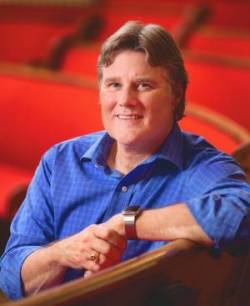Does belief lead to faith?
The difference between belief and experience
By N. Graham Standish
A Thought: Our beliefs about God can shape our faith, but it’s the EXPERIENCE of God that gives us faith. When belief is devoid of experience, it becomes dogma. When experiences of God lead to deeper beliefs, they give us life.
A Reflection: I had an email chat with an atheist a few years ago. She wrote me because of an op-ed piece I had written for The Pittsburgh Post-Gazette. She really liked what I had written, but she wondered, “How can you be so enlightened and still believe in God?”
As we emailed back and forth, I eventually I said something that struck me: “I don’t believe because I believe. I believe because I’ve experienced.” In that moment I realized that we weren’t separated by belief. We were separated by experience. I had experienced God. She hadn’t.
The word “atheist” is poorly defined. We say an atheist is someone who doesn’t believe in God. Actually an atheist is someone who hasn’t experienced God.
Too often we reduce faith to a matter of belief. Faith is a matter of experience. Are you a person of faith? If so, why? Is it because Christian faith makes so much sense?
I’ve spent most of my life studying Christian theology, spirituality, history, and the Bible. I can say with complete confidence that much of what we believe doesn’t make sense. Does it make sense that God is one and three at the same time? Does it make sense to say that Jesus lived on the earth, but also was the power of God during creation (John 1:1-5, Colossians 1:15-16)? Does it make sense to believe that Jesus was resurrected? Does it make sense to believe that to live we have to die, to be rich we have to be poor, to be found we have to be lost, to be exalted we have to be humbled, to save our lives we have to lose our lives, and to receive we have to give?
I’ve believe because I’ve experienced God as three. I’ve experience Christ as God’s creative and creating presence in the world. I’ve experienced the deeper wisdom of his paradoxical teachings.
We’re a product of the Age of Enlightenment, where we think everything must make rational sense for it to be true. But Christianity wasn’t built on rational belief. It’s been built on thousands of years of people’s experiences of God, all sprouting out of the experiences of Jesus’ disciples and followers. It’s not rational belief that transforms people, it’s people’s experiences that transform.
You may be thinking: Didn’t Paul make rational arguments in spreading the gospel? Sure, but they were arguments based on his experiences of God in Christ because that’s how he became Christ’s servant. He experienced Christ on the road to Damascus, and it wasn’t a rational experience, but it was an experience that changed his life.
Or you may be thinking: Doesn’t the Bible tells us to “believe” in Jesus (John 14:1). Actually, no. The Greek word for “believe” in the Bible is pistis, which means to “trust and have faith.” It only minimally means “to believe.” We’re called to trust and have faith in Christ because we’ve experienced God. We’re not called to mere belief in God. God wants a relationship build on trust and faith. God doesn’t sit around thinking, “Man, I hope more people would believe that I exist!”
Faith isn’t a matter of having the “right” beliefs and knowledge. Faith is an ever-growing, ever-seeking, ever-flowing experience of God that deepens our lives while giving us life. Belief is important, but we can’t confuse knowledge about God with an experience of God. When we do, our beliefs become dogmas, and dogmas stifle experience.
This is what separates us from atheists—we believe because we’ve experienced God. They don’t believe because they haven’t experienced God.
The question for us is how we are going to expand our experiences so that we can invite others to share in them.
The Rev. N. Graham Standish, Ph.D., M.S.W. (www.ngrahamstandish.org) is senior pastor of Calvin Presbyterian Church in Zelienople, Pennsylvania (www.calvinchurchzelie.org). He is the author of seven books on spirituality and church transformation, and is an adjunct faculty member of Pittsburgh Theological and Tyndale Seminaries. He also has a background as a spiritual director, and as an individual and family therapist.